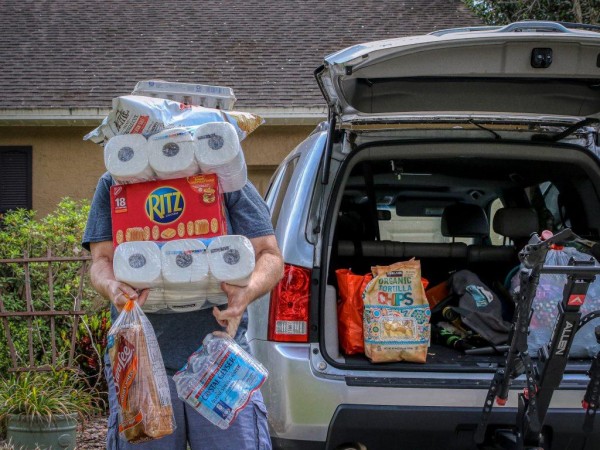COVID-19 Has Led People to ‘Hoarding and Herding,’ Study Says
Rushing to hoard toilet paper before they disappear from the supermarket shelves, hiding cash under the cushion, buying a pet puppy, or probably, starting some gardening are all somewhat impulsive deeds brought about by COVID-19.
Indeed, this pandemic has activated these and more interesting yet unusual changes in most people's behavior.
In a recent study titled "Understanding the psychology behind economic decision-making," published in the Journal of Behavior Economics for Policy, researchers focus on why and how a pandemic might have activated responses like hoarding.
In a study conducted by the University of Technology Sydney Business School, Deputy Dean and behavioral economist Professor Michelle Baddeley investigates cross-disciplinary explanations for hoarding, as well as other changes in behaviors observed amid the global health crisis.
ALSO READ: 260,000 New COVID-19 Cases May Have Resulted From Sturgis Motorcycle Rally
Response to COVID-19 in Different Aspects
Professor Baddeley said that understanding economic, social, and psychological responses to COVID-19 can contribute to the adaption of policies that could limit their adverse effects and nudge towards improved health and economic impacts.
Governments worldwide have executed behavioral insights units to provide assistance in public policy and encourage public decision-making and compliance.
Hoarding behavior, where individuals impulsively collect and store items, can result in scarcities. In the case of cash hoarding, it can lead to adverse effects on the economy.
Economy-wise, hoarding is frequently studied and seen in the savings perspective. When the confidence of consumers is way low, spending drops as a result, and households have increased savings as they are anticipating bad times are about to come.
Baddeley also said that fear and anxiety affect financial markets, as well. The study specified that the financial market volatility's VIX 'fear' index saw a dramatic increase of 564 percent from November 2019 to March 2020 as investors were rushing to transfer their money into "safe haven" investments like bonds.
DON'T MISS THIS: COVID-19 Update: Recent Developments Regarding the Infectious Disease
Hoarding: What could be the explanation?
According to the study, as moves in both savings and investments amid the pandemic make economic sense, hoarding of toilet paper, which took place globally, is quite a struggle to explain in terms of the traditional economy.
Behavioral economics discloses that an individual's decisions are not sensible at all times. In one's interest in the long run, it can be affected by a great range of psychological aspects and unconscious partialities, especially in times of uncertainties like this pandemic.
"Evolved instincts dominate in stressful situations, as a response to panic and anxiety," Professor Baddeley explained. "During times of stress and deprivation, not only people but also many animals show a propensity to hoard."
The Tendency of 'Herding'
One more instinct that came in this stressful time is the longing to be part of the herd.
Professor Baddeley, who wrote a book that explores more details about the idea of herding said, a person's propensity in following others is complex. She also noted that some of the reasons why people are herding are well-rational.
The study and book author also described herding as a type of heuristic, a decision-making shortcut that saves people time and cognitive exertion.
"When other people's choices might be a useful source of information, we use a herding heuristic and follow them because we believe they have good reasons for their actions," she explained. "We might choose to eat at a busy restaurant because we assume the other diners know it is a good place to eat. "
When wearing a mask, for instance, most individuals are generally law-abiding people. However, they might not wear one if they feel and think it would make them look different—either appearing overanxious or nerdy.
However, if there is a regulation that one has to wear a face mask or a face shield, this then provides people with clarity and guidance, and it prevents them from worrying about what other people are thinking.
IN CASE YOU MISSED IT: Case Report at Children's National Hospital Raises Concern for Resistance to Antibiotic
Check out more news and information on COVID-19 on MD News Daily.
Sep 11, 2020 07:40 AM EDT






